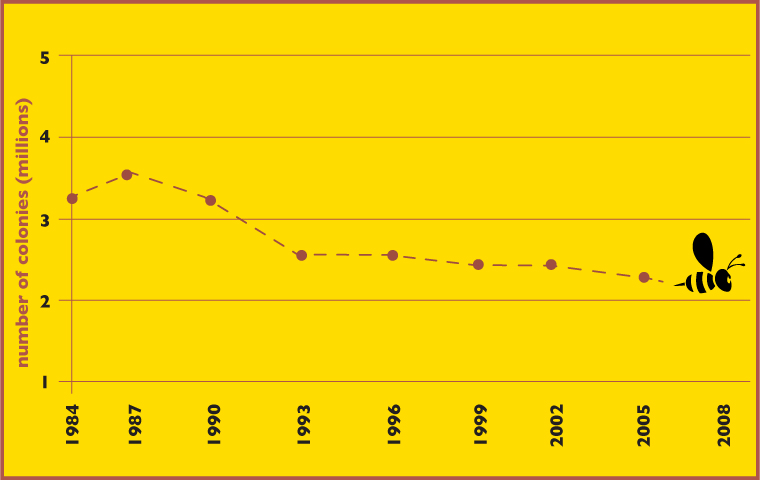
Nick Mathis wants to save the bees.
According to the Greenpeace Research Laboratories Technical Report, honeybees are an integral part of agriculture, pollinating more than 75 percent of crops that make up the human diet.
The honeybee population has dwindled throughout the years because of Colony Collapse Disorder (CCD), according to the U.S. Department of Agriculture.
CCD is a “dead colony with no adult bees or dead bee bodies but with a live queen and usually honey and immature bees still present.” No scientific cause for CCD has been proven, according to the U.S. Department of Agriculture.
The senior engineering major’s interest in bee repopulation was sparked when he came across an Indiegogo campaign, an international crowdfunding website, for a new style of apiary that would make beekeeping easier and less disruptive to its inhabitants.
According to an April 13, article by CNN Money, nearly 30,000 people contributed to the Indiegogo campaign for the company Flow Hive, making it the most successful crowdfunding operation in the site’s history.
Flow Hive raised just more than $10 million, even though its founders initially sought $70,000, the report says, which it reached in 477 seconds.
More than 6,100 people paid $600 for the full hive, which is expected to start shipping in December, according to CNN Money.
Mathis is on the Student Government Association’s sustainability committee; a project-based standing committee that meets intermittently to identify ways to make campus more sustainable.
A recent project of the committee was to help educate people on a recycling project the Physical Plant implemented.
“The membership for (the committee) since its inception has been kind of spotty,” Mathis said. “I think a large factor in that is that there aren’t any long term projects.”
But Mathis has an idea for a project that might get campus buzzing.
Honey on tap
Traditional beehives, also known as apiaries, have a wooden frame with different divisions that are removed to extract honey or wax.
With the Flow Hive, there’s a key activated mechanism inside that breaks open the inside of the cells and lets the honey flow down into a collection reservoir, which then flows straight out of the hive.
According to Flow Hive, it’s “literally honey on tap.”
“Whether or not the new type is used, I still think it’d be a good project,” Mathis said.
Besides swift access to sweetness, he said the primary use of the hive would be as a measure of support for bee population growth.
CCD is not the only health risk to honeybees and the economic stability of commercial beekeeping and pollination operations in the U.S., according to the U.S. Department of Agriculture. Since the 1980s, the department reports, honey bees and beekeepers have been dealt a host of new pathogens like deformed wing virus and nosema fungi, and have been introduced to new parasites such as Varroa mites or pests like small hive beetles, among an assortment of other threats.
According to The Nature Conservancy, although there is an increasing demand for pollination services, the number of honeybee colonies has dropped to about 2.5 million from more than 4 million in the 1970s.
In Indiana alone, at least 16 different crops must be pollinated by honeybees like apples, blueberries, cantaloupe and cherries, according to The Nature Conservancy. Bees also produce over 609,000 pounds of honey per year in Indiana.
Many institutions like Purdue University have organizations dedicated to improving the honeybee population, and Mathis wants USI to be in on the action.
The Proposal
Mathis constructed a proposal to install several flow hives on campus.
SGA backed the initial proposal, and some administrators, like Assistant Dean of Students Tara Frank, have already begun to show support.
The proposal, Mathis said, will account for student safety.
“By nature, bees are pretty gentle, so they don’t need as much space as what’s been proposed. As long as people aren’t disturbing the bees intentionally, there probably won’t be much problem,” Mathis said. “Lots of people have beehives in their backyards and that’s a fairly short distance.”
Another aspect of the proposal suggests potential research opportunities.
Associate Professor of Biology Eric McCloud is working with Mathis to construct a more thorough proposal to present to Scott Gordon, dean of the Pott College of Science, Engineering, and Education, within the next month.
McCloud said there are many laboratory exercises that could utilize the hives, such as studying foraging and pollinating behaviors, or observing the evolution of the type of biology bees have.
“From my point of view, the bees provide an excellent opportunity to develop ways to teach,” McCloud said.
He said the original idea is all Mathis, and he is glad the senior sought him out.
“(Mathis) has put a lot of work into this and has started to develop his contacts with other folks that will be interested,” he said.
Although Mathis is graduating this semester, McCloud said he has the ability to set up something that is lasting. He said he hopes to be working on implementing the project a year from now.
“(Mathis) is really to be admired for wanting to make a permanent impact, “ McCloud said. “College is so much more than four years of sit and get. College is an opportunity to have your world changed as a student and to begin to make serious impacts on the world around you.”


